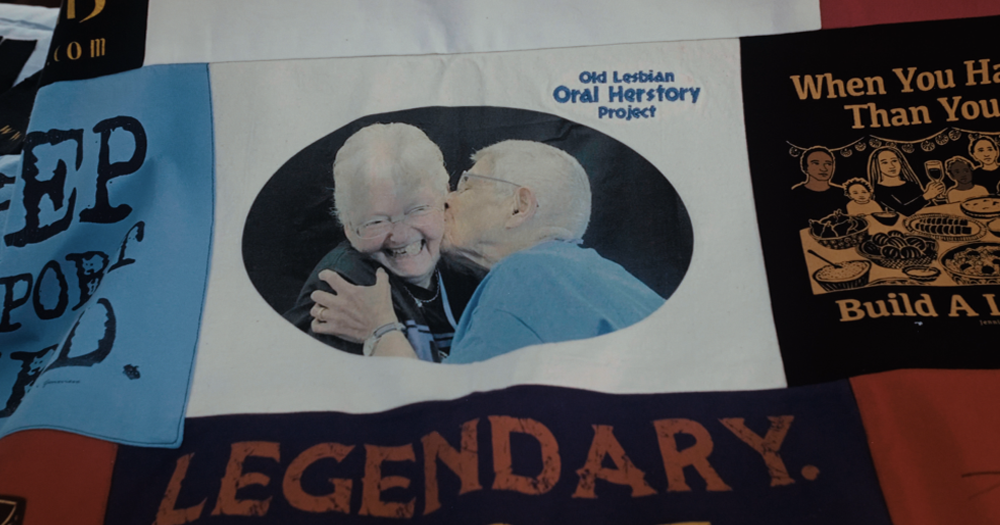Originally started in 1998 and now featuring over 900 candid interviews, the Old Lesbian Oral Herstory Project seeks to preserve the lives of older lesbians who too often have been made invisible throughout history.
After a lifetime hidden away, the older sapphic generation is now able to tell their story with The Old Lesbian Oral Herstory Project (OLOHP). The founder of the project was Arden Eversmeyer, a school teacher who dedicated her retirement to preserving the lives of lesbians in the US from the early to mid-20th century.
She began interviewing as many women as she could, with the only requirement for interviewees being that they had to be a lesbian and over 70 (this age requirement has since been loosened). The interviewee could remain anonymous and didn’t have to be out.
Eversmeyer grew a team of dedicated older lesbians to help her interview as many people as possible. They recruited subjects through word of mouth, posting ads in Lesbian Connection magazine and putting up posters in women’s spaces.
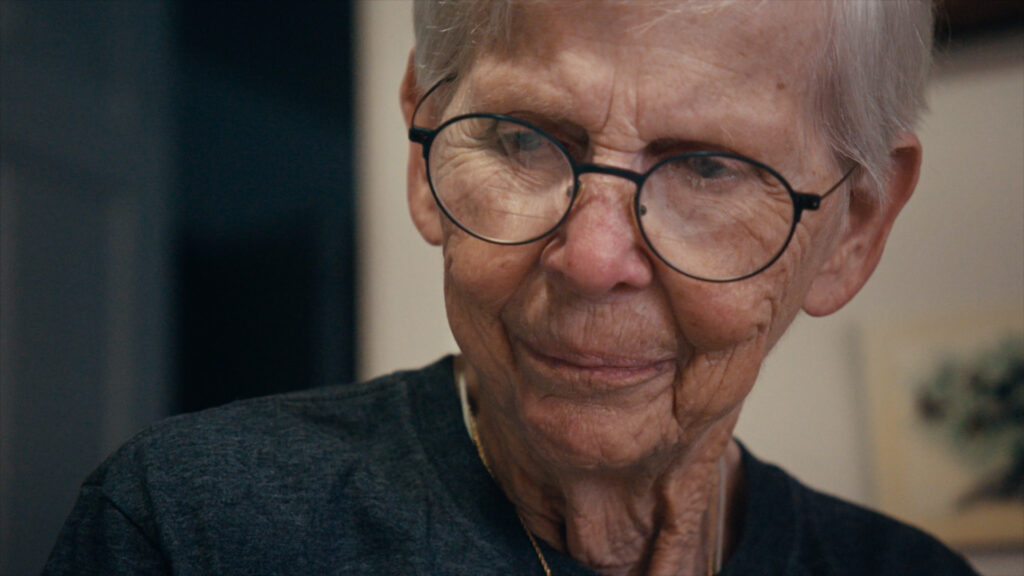
In the interviews, they asked the women questions about where they were born, what growing up was like, what jobs their parents did, etc. This allowed the interviewees to relax into the conversation and talk about as much or as little as they desired.
After Eversmeyer’s death in November 2022, close friends and dedicated activists took up her cause to continue her legacy. In May 2024, Brooklyn-based filmmaker Meghan McDonough released a documentary titled Old Lesbians: Reclaiming Old Age and Queerness Through Storytelling. Commissioned by Guardian Documentaries, the film is about the interviewers who created OLOHP and the old lesbians who told their stories.
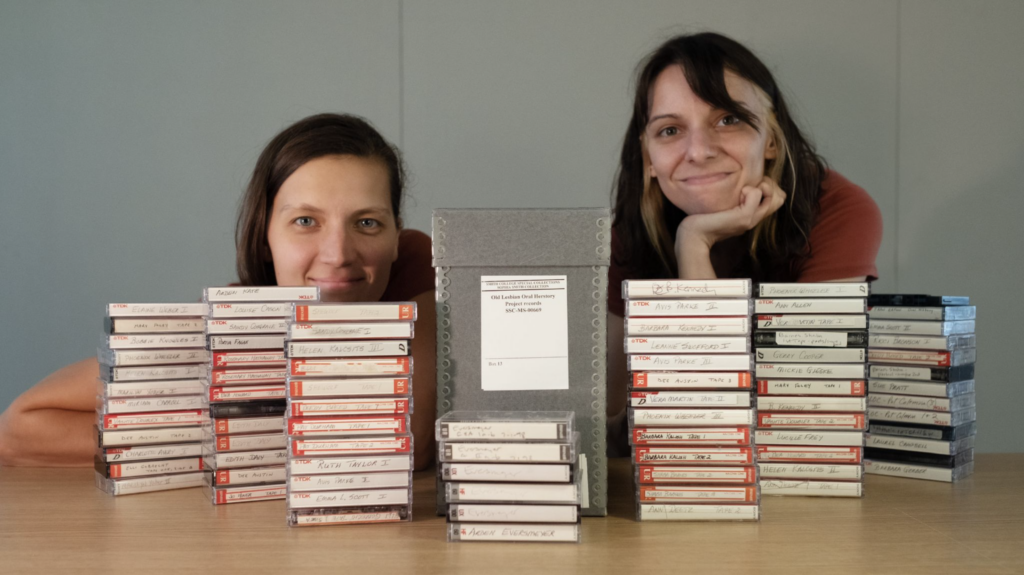
The documentary opens with Arden Eversmeyer herself, who says: “First of all, you need to learn to say the word ‘old’. ‘Older’ is a euphemism, just like ‘elder’ and ‘senior’ and ‘golden’. And these are all terms that soft-pedal around a word of denigration. And so it’s like taking back the word ‘lesbian’. We take back the word ‘old’.”
One of the interviewers was Barb Kucharczyk (76), who served as an Air Force veteran in the US military for two decades and is now living in Sumter, South Carolina.
“We’ve tried to make it as gentle of an experience as we can for the women,” Kucharczyk told The Guardian.
“It becomes a chronological discussion of their life story. At some point in time, they will talk about being a lesbian. But we don’t walk into the door with 47 questions about how they found out they were, or how they were treated. We want the woman to tell her own story, and if the details about her lesbian lifestyle are slim, that’s OK.”
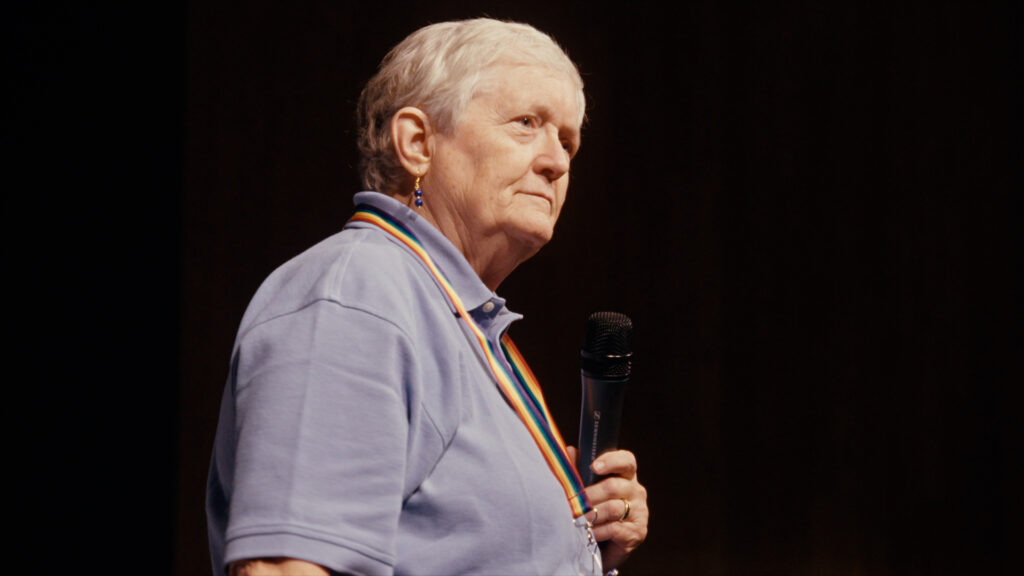
The project revealed the physical and verbal attacks, the conversion therapy, the ostracism and the hiding away that these women had to endure in their lifetime – both before and after Stonewall. It also gave visibility to a community that, for too long, had been rendered invisible.
Bev, one of the interviewees who was born in 1919, said: “No indication, nothing written, no organisations, no books. Had no idea that there was such a thing as a lesbian.”
Another of the women interviewed by Eversmeyer was Ethyl “Ricci Cortez” Bronson, an exotic dancer and a member of the Burlesque Hall of Fame. She also opened the first lesbian bar in Heuston and, in an interview that took place shortly before her death in 2008, told Eversmeyer about how her club was frequently raided by cops.
“A lot of the girls in slacks and pants had been hauled off to jail in the raids,” she said. “They even put me in handcuffs and carried me out to the police car. In my own bar! This is what we went through to get open bars, open gay bars.”
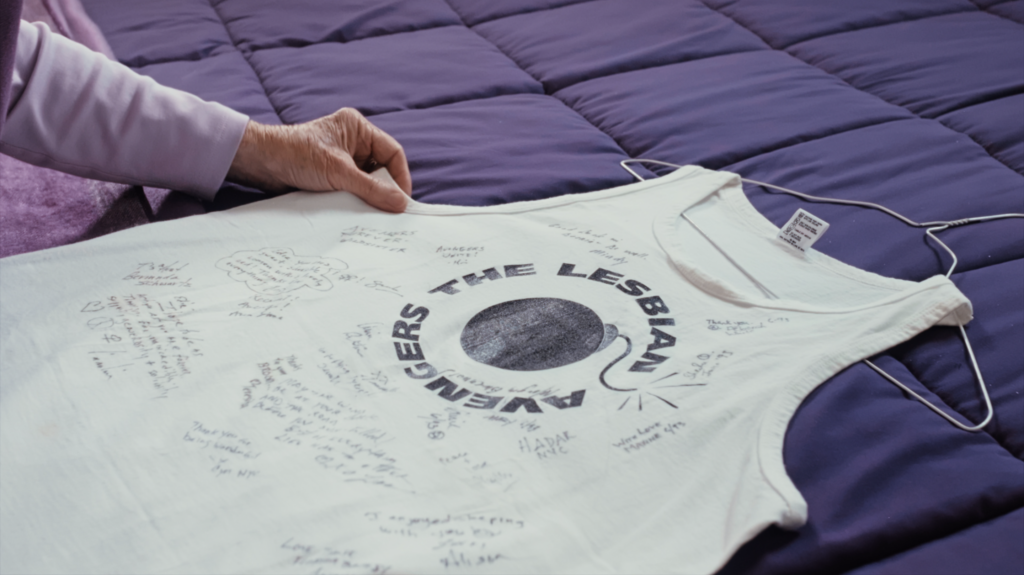
Edie Daly (87), a retired intensive care nurse interviewed in the documentary, said: “Women have been erased from history, and so this is our attempt to rectify that in some small way.”
She discusses the women she interviewed, saying that while some of them wanted their names shown and their stories shared from the start, some other women didn’t want to share their identities until they had passed. Other women didn’t want their names ever made public for fear of outing others in their stories.
“Some of these stories are still closed, because even though they have passed, they were in fear of outing themselves or someone else,” Daly explained.
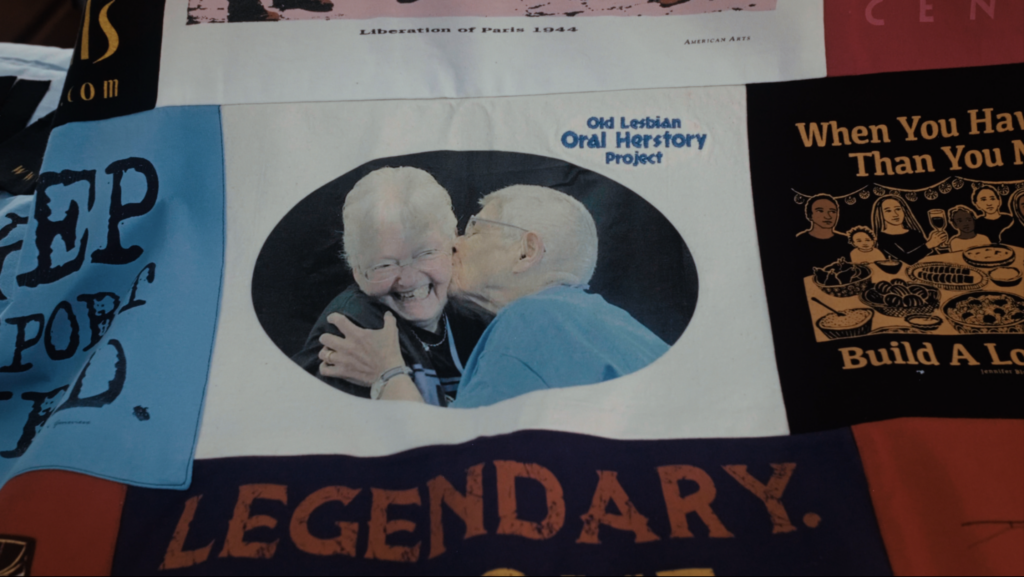
Lillian Faderman, a professor at Fresno State in California and an award-winning scholar of lesbian history, said she hopes the project will “send a message to the people in our community for posterity, that we are here and flourishing”.
“As a young lesbian, my feeling was that what happened when you reach 30 or older was that you probably died,” Faderman shared in her interview with Eversmeyer. “There were simply no role models, and I don’t think it’s quite as bad today because of social media, but for the most part, I think that young lesbians still have no notion that we don’t disappear after 30. I think it’s important for them to understand that they have a future outside of youth.”
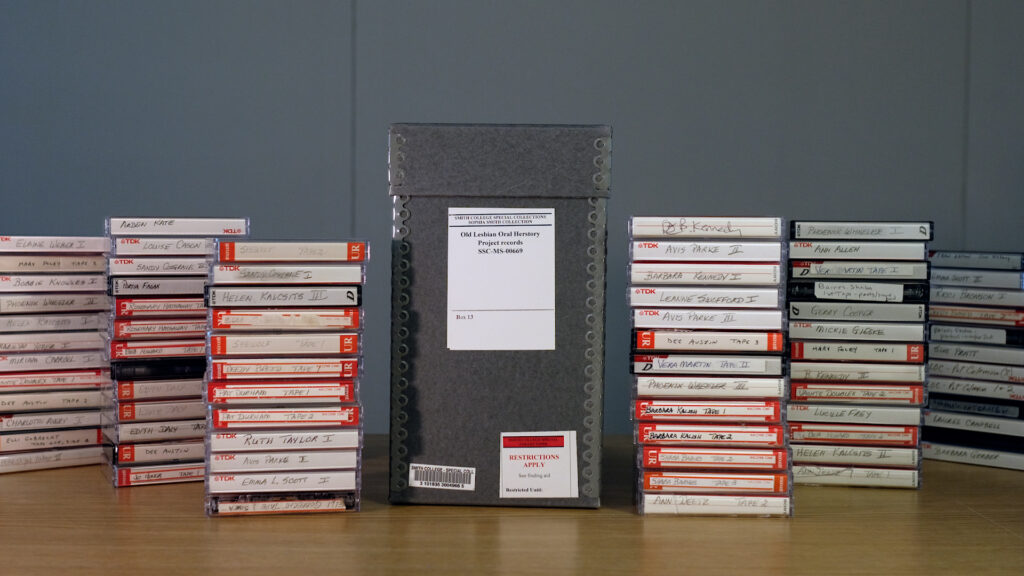
The photos, audios and transcripts of OLOHP can be found in the archive at Smith College in Northampton, Massachusetts. Profiles and excerpts of the project can be found on www.olohp.org.
Meghan McDonough’s documentary can be watched here. ‘Old Lesbians’ is available for educational screenings worldwide, with a discussion guide and a virtual director Q+A upon request.
© 2025 GCN (Gay Community News). All rights reserved.
Support GCN
GCN is a free, vital resource for Ireland’s LGBTQ+ community since 1988.
GCN is a trading name of National LGBT Federation CLG, a registered charity - Charity Number: 20034580.
GCN relies on the generous support of the community and allies to sustain the crucial work that we do. Producing GCN is costly, and, in an industry which has been hugely impacted by rising costs, we need your support to help sustain and grow this vital resource.
Supporting GCN for as little as €1.99 per month will help us continue our work as Ireland’s free, independent LGBTQ+ media.
